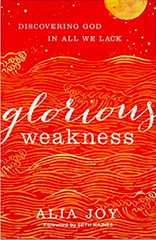Alia Joy offers her stories to you as permission to tell your own, to be honest about the unlikely places God might meet us and to make peace with areas that aren’t Sunday-school shiny or put together. Alia unflinchingly wields her words to heal as much as she cuts in her deeply personal exploration of what it means to be poor in spirit and how the Kingdom of Heaven is an inheritance for those who know what it means to need. With lyrical prose, she poignantly writes about meeting Jesus in her weakness and lack. Alia asks, what if weakness is a holy invitation to allow grace to do its work? What if weakness is a gift? Glorious Weakness offers hope for anyone who struggles or anyone who loves the struggling. For anyone who has sat in the dark with a silent God searching for a glimmer of hope that they’re not alone. It’s for everyone who needs to know that being poor in spirit is the richest place of all. It’s a grace to welcome Alia to the farm’s front porch today…
I fingered the bottle’s side and slipped a tiny white pill up and onto my palm, placing it on my tongue, gulping it down.
I tore the label, scratching the sticker with my thumbnail. I didn’t want anyone to know I was taking an antidepressant.
I was embarrassed I wasn’t enough.
I couldn’t fix myself with more faith and more prayer and more hours dragged off the clock spent in quiet seeking.
So I searched for sin in the wreckage, a sign that if I repented hard enough for my lack, the darkness would lift and His presence would fill the empty places where nerves and neurons had stopped being receptive and the deep pull of sadness had taken their place.
But no amount of repenting for my weakness, for my inability to hold all the pieces of me together and be a good Christian girl who chose joy and fought the darkness with well-memorized Scripture, worked. My anguish grew.
I’ve barely survived depression at times.
There are nights so dark they wolf down my days—all fangs and bared teeth under a moon thick as a lemon wedge bobbing in a sky full of sweet tea. But all I taste is bitter. And even still, I thirst.
My tongue has been long trained by Sunday school etiquette and polite society never to cough up unpalatable words like depression or suicide or antidepressant in church company.
“Fine” becomes my answer, so I choke down the unsavory words for fear of being the guest who fumbles the finery and dribbles wine down the front of my shirt.
Afraid I would forget my manners in the house of God and rip into the bread with white-knuckled fists like it was life and gulp down the wine like my tongue was on fire.
We’re practiced at nibbling tiny, digestible bites and taking the daintiest of sips, patting at our lips with crisp white linen, but we all come famished to grace. There is no other way to be filled.
We are all beggars here, some of us just clean up better.
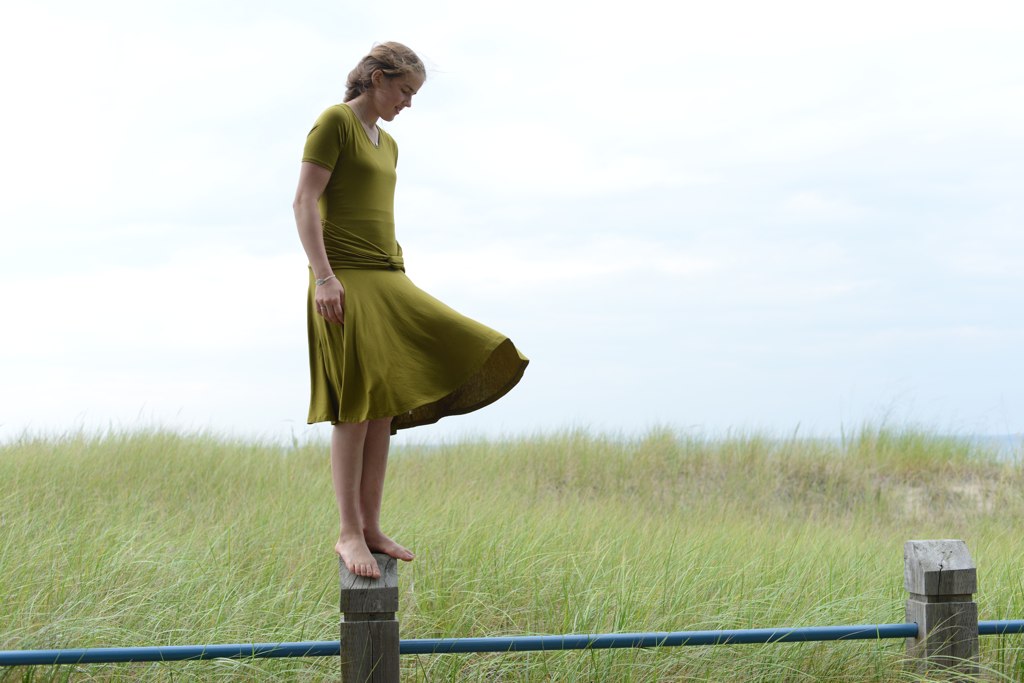
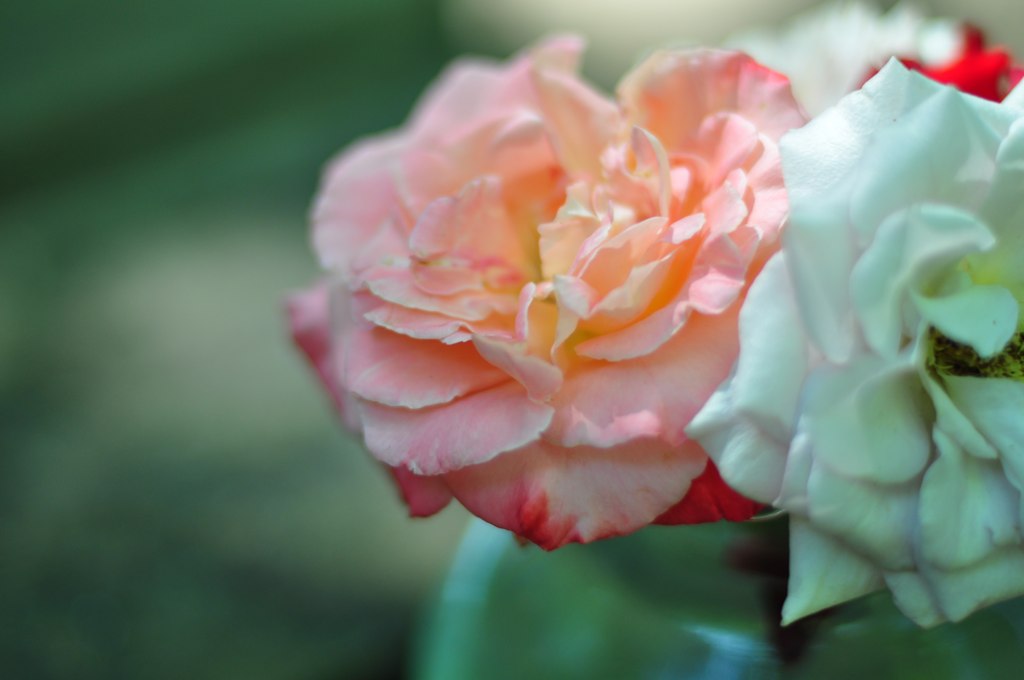
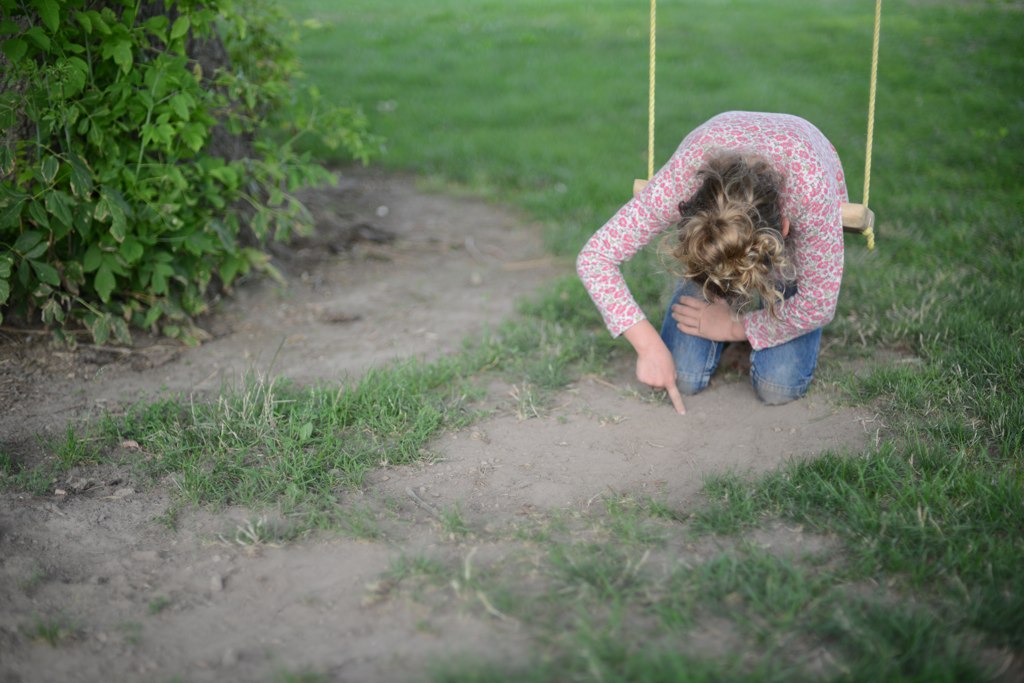
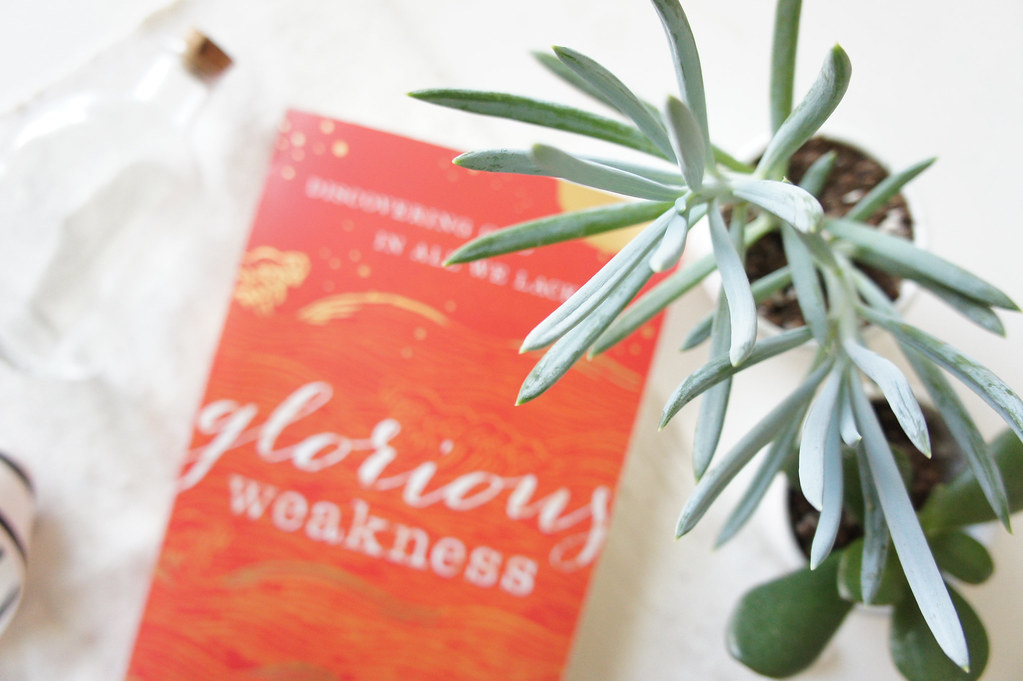

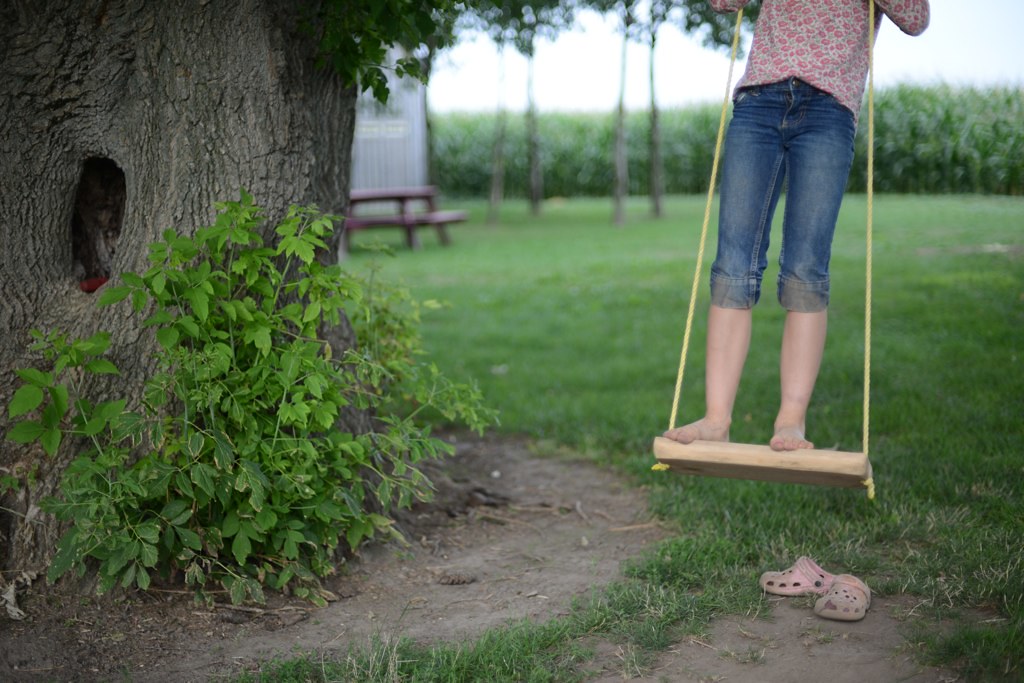
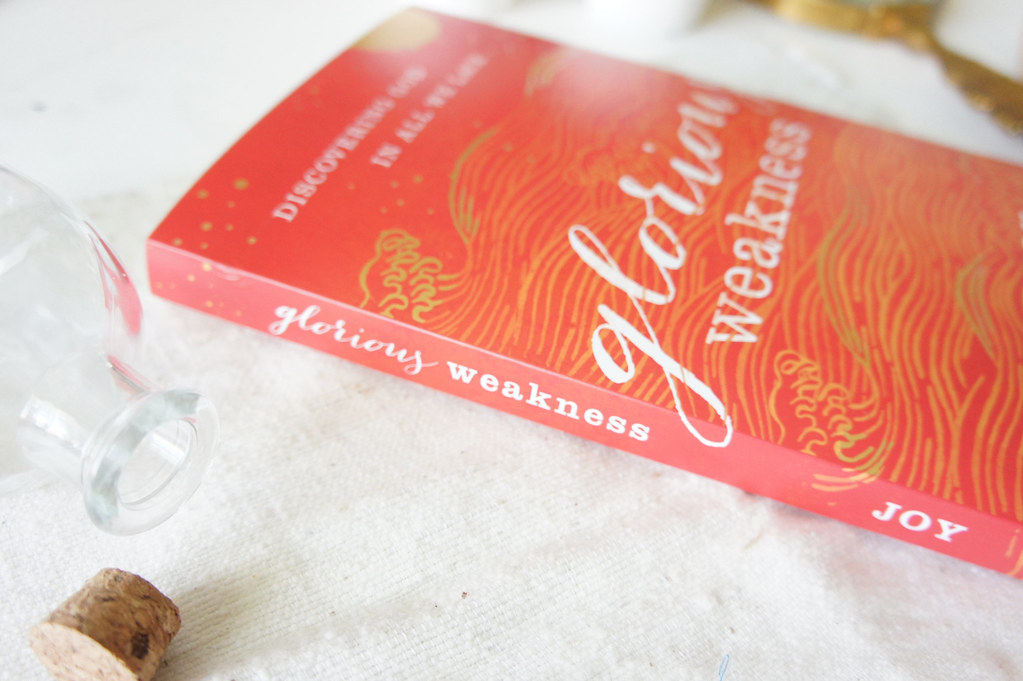

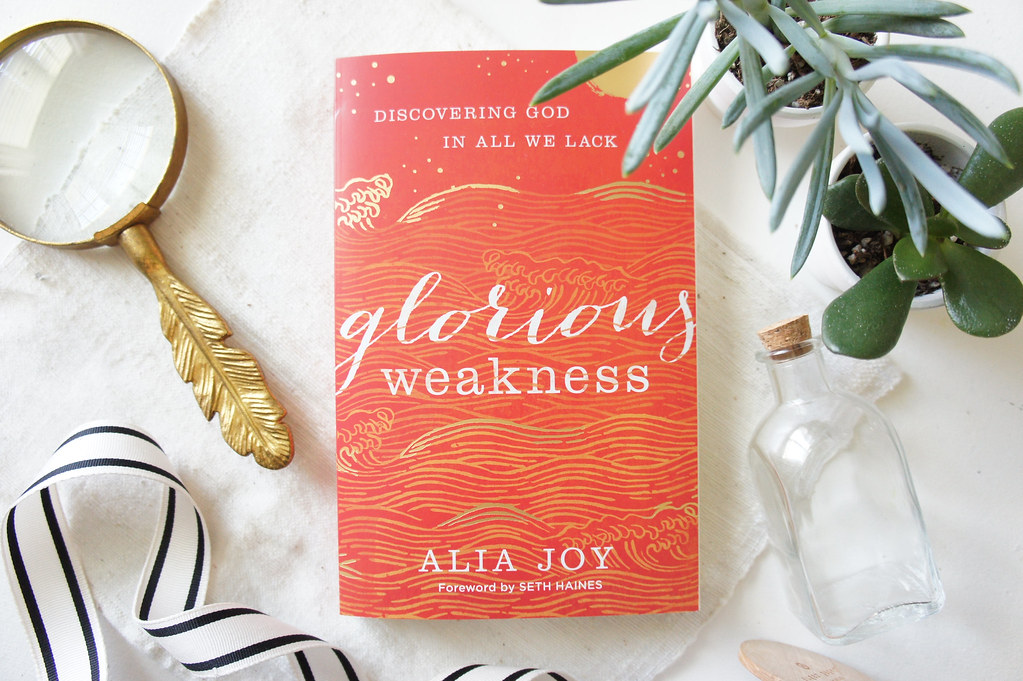
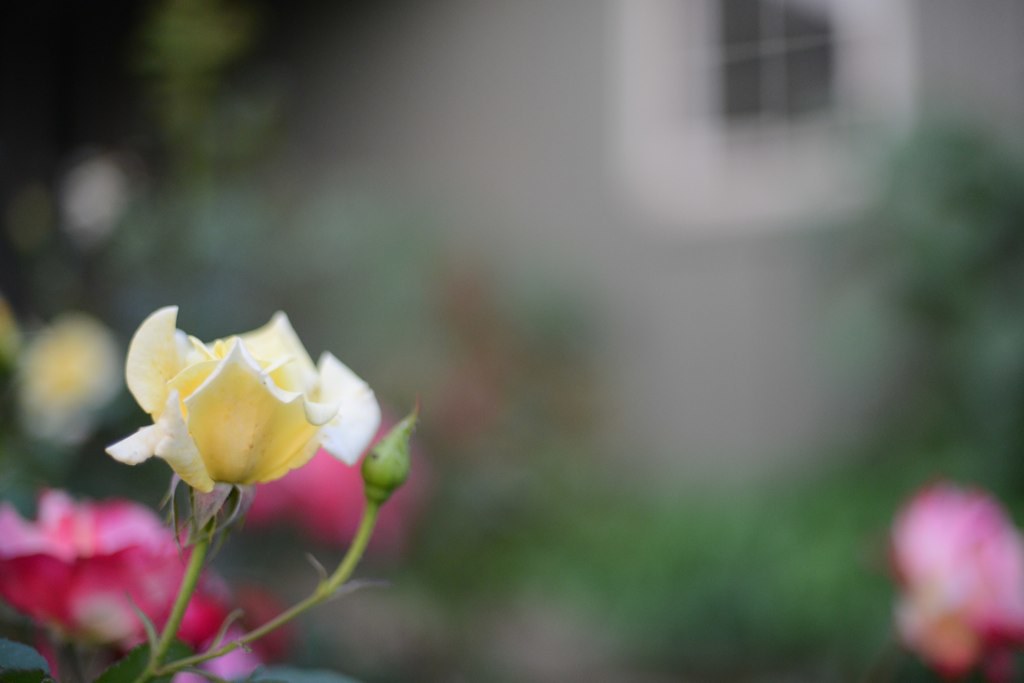
Those pangs, that soul hunger points us to the cross. To communion. To the fellowship of suffering. To the gift of resurrection and new life.
It’s as though Jesus knew in the breaking of the bread and the pouring of the wine how ravenous we’d be in this world. And of course He knew.
He knew exactly how much we’d need reminding that the brokenness of bodies and the blood spilt have purpose, because some days that’s all we feel.
That holy hollow, that treacherous ache allowed space to be interrupted by grace. The days slowed and became monotonous, a managing of sorrow and symptoms. On the days when my body waged war in every cell, I asked Jesus to show Himself.
I found Him in beauty and wonder.
An imagining and hoping in glory. A prophetic mindfulness.
I lay in bed one night, the curtains wide open like a theater stage hosting an ensemble of stars. The inky-black midnight was thick with them, like tiny seeds of hope embedded into soil as rich and thick as coffee grounds, and I imagined the way that light navigated wise men across foreign lands seeking a King.
The hope for us all.
I am a complete version of me because no willpower or positive thinking or bootstrap mentality will ever complete what grace has already done.
And this is the good news I often missed during those years when holy wonder seemed a notch above me and continually out of reach.
It slowed my soul enough to see beauty in peonies blooming by my bedside even though my nightstand was also covered with prescription bottles.
While I was stuck in traffic on my way to the doctor’s office after months of physical illnesses and surgeries, I marveled at how the blushing sunset melted into the clouds like a swirl of rouge swept across porcelain cheekbones.
A wonder-filled life is grateful attentiveness to the awe in our ordinary.
I confess I am undone by the strum of messy chords on a battered guitar, by a perfect red lipstick, by children’s laughter on the first warm day of spring, by the musty splendor of a dusty old book.
I am gobsmacked by the first bite of a ripe summer peach. I am moved by the sway of limbs and swish of hips when that special song comes on, by the old copper roof caught in the tendrils of tender sunlight, the architecture, and the brick walls embraced by creeping vine on the slow walk home.
I am touched by everyday kindness—the casserole bringers, the lady in line who smiles in solidarity and lets me go first when my kid is shrieking. The ones who say, “You can sit here,” scooching over to make room. The ones who text, How are you? I’m thinking of you.
We are loved by the people, places, and things we love.
We are loved by the way we take notice when our souls feel alive, and the way we are reminded to live with wonder when our souls don’t.
To make contact with the world, to bear witness to the glory of our everyday ordinary. I unwrap my arms and gather my children, and on days when I couldn’t leave my bed, they offered their tiny hugs, homemade art, and clumsy prayers. And it was glorious.
They see the poverty in me, the deep, abiding hunger of a poor soul, the desperation for God, and they know it’s not just about Bible verses and making good life choices; it’s not about having it together or doing more for God.
They know there is a holiness I long for but it’s born in the surrender, in the ever-expanding “Not my will but yours.”
It’s born on the ordinary days, when I wonder, am I strong enough to live the life I’ve been given?
And God’s answer to me is, I am with you always.
Alia Joy is an author who believes the darkness is illuminated when we grasp each other’s hand and walk into the night together. She writes poignantly about her life with bipolar disorder as well as grief, faith, marriage, poverty, race, embodiment, and keeping fluent in the language of hope. daily. Her blog, AliaJoy.com, centers on her dependance on Christ and offers insight into her life, family, and faith journey.
The remarkable beauty of Alia Joy’s, Glorious Weakness: Discovering God in All We Lack, comes not from her raw, vulnerable testimony, but rather from the message she shares with her readers. Out of our individual suffering comes the highest call of all: to offer the grace we so deeply long for to those we view as least deserving especially if we think the least deserving is ourself.
Throughout her story of weakness, lack, and poverty, Alia Joy offers an unfiltered image of her bipolar disorder, chronic illness, and other brokenness that brought her to the foot of the cross. Readers will learn to confront their misunderstandings about poverty, mental and physical illnesses, and the function of the church in confronting and discussing suffering. In recognizing the role of weakness in God’s divine plan, Glorious Weakness ventures to create a conversation that acknowledges suffering and poverty as a place for learning, growth, and ultimately, reliance on God.
[ Our humble thanks to Baker for their partnership in today’s devotion ]

